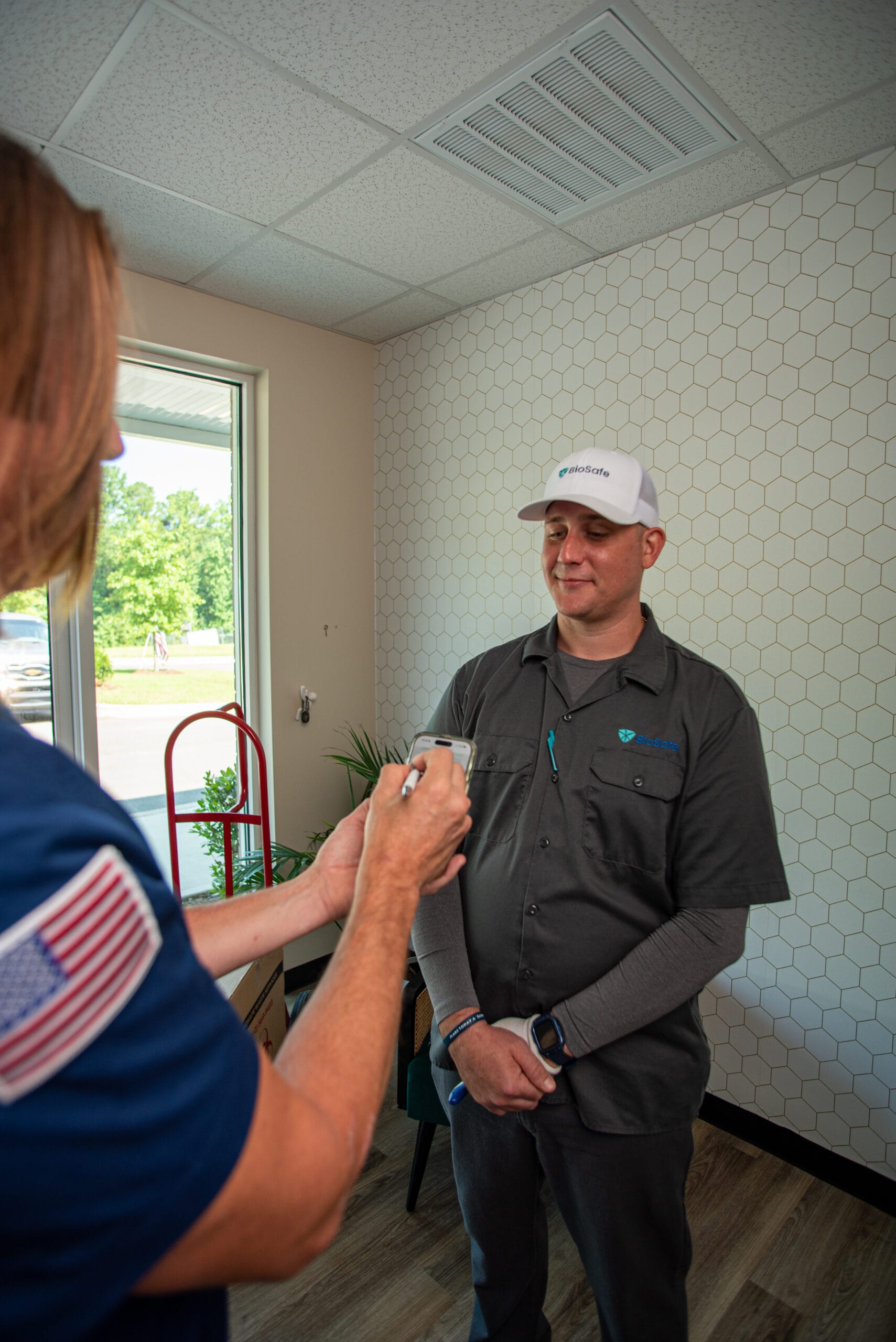Long-term care facilities (LTCFs) — including skilled nursing facilities, assisted living, and retirement communities — provide daily care to residents who often need ongoing medical attention. That care generates medical waste, and handling it correctly is critical for safety, compliance, and resident well-being.
What Counts as Medical Waste in LTC Settings
The most common types of regulated medical waste in long-term care facilities include:
- Sharps – needles, lancets, and syringes.
- Items saturated with blood or bodily fluids – such as bandages or dressings.
- Pharmaceutical waste – expired, unused, or partially used medications.
How Waste Should Be Handled
To keep staff and residents safe, LTC facilities need clear procedures:
- Sharps Disposal – All needles and lancets must be placed directly into an approved red sharps container. Containers should be puncture-resistant, labeled with the biohazard symbol, and kept near the point of use.
- Red Bag Waste – Items saturated with blood or bodily fluids go into red biohazard bags, which are then sealed and placed inside rigid boxes provided by the waste company.
- Pharmaceutical Waste – Non-hazardous pharmaceuticals should be disposed of in designated blue and white pharmaceutical waste containers. Controlled substances must follow separate pharmacy or DEA procedures, but all other medication waste can be collected safely by Biosafe.
Storage and Transport Basics
Once waste is packaged, facilities need to make sure it is:
- Stored in a secure area – away from residents and visitors, with access limited to staff.
- Sealed before transport – boxes must be taped and closed securely before pickup.
When stored and packaged correctly, your medical waste partner — like Biosafe — will handle the rest, including transportation and final treatment.
Nursing Home–Specific Compliance Context
CMS requires each nursing facility to maintain an Infection Prevention and Control Program (IPCP). Your waste management procedures should align with this program, including policies for regulated waste, pharmaceutical waste, and emergency spill response.
Recent CMS/CDC guidance also highlights Enhanced Barrier Precautions to limit the spread of multidrug-resistant organisms (MDROs). This affects PPE usage, which in turn impacts how waste is segregated and packaged. Waste disposal isn’t just a back-end issue — it’s an integral part of your infection prevention strategy.
Common Pitfalls We See in LTC
Even well-run facilities sometimes run into problems with waste handling. The most frequent issues include:
- Over-bagging: Placing non-regulated items like lightly soiled PPE or gloves into red bags unnecessarily. This drives up costs and disposal volumes.
- Sharps container placement: Having sharps boxes only at nursing stations instead of near the point of care, which can increase needlestick risks.
- Unsealed containers: Boxes not fully taped or closed before pickup, which can cause compliance issues.
- Medication disposal gaps: Forgetting that expired or unused medications require separate handling — not mixing them with red bag waste.
By addressing these issues, LTC facilities can improve safety and reduce costs at the same time.
How Biosafe Helps Long-Term Care Facilities
Biosafe works with nursing homes, assisted living, and retirement communities across North Carolina to make medical waste disposal simple and reliable. We provide:
- The right containers for sharps, red bag waste, and pharmaceuticals.
- Regular, scheduled pickups so waste never piles up.
- Local, responsive service without hidden fees or long-term lock-in contracts.
- Guidance to help facilities avoid common pitfalls and stay aligned with state and federal requirements.
Sources & References
- OSHA – Bloodborne Pathogens Standard
- North Carolina DEQ – Medical Waste Guidance
- CDC – Safe Injection Practices
- CMS – Infection Prevention & Control Programs

